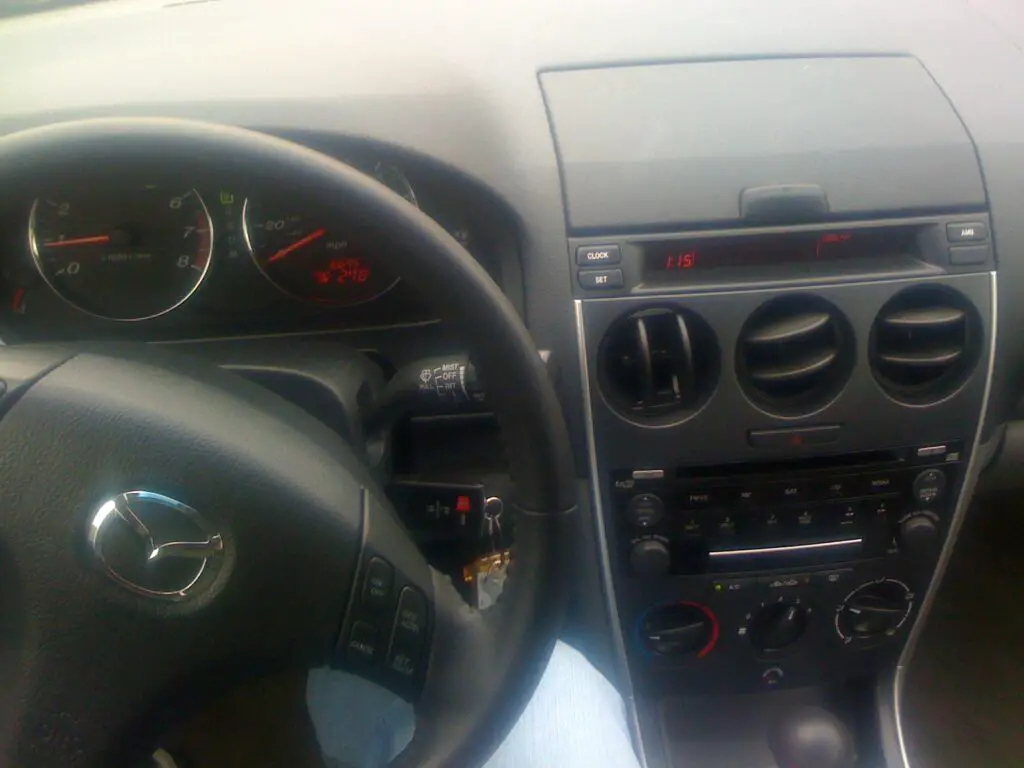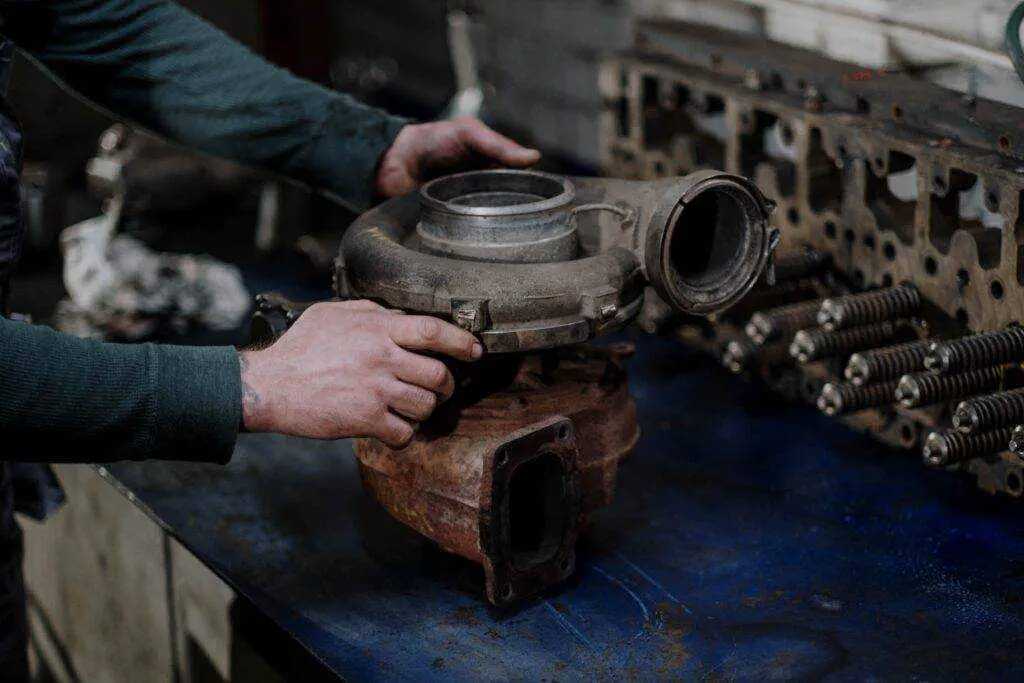Seeing plumes of black smoke emitting from the exhaust pipe of a diesel vehicle, especially when accelerating, is a common sight on roads everywhere. However, excessive black smoke is not normal and can indicate serious engine issues that require attention.
In this comprehensive guide, we’ll explore What Causes Black Smoke in a Diesel Engine When Accelerating? look at related symptoms, assess associated risks, and provide actionable solutions to address the problem.
Main Causes of Black Smoke When Accelerating
What Causes Black Smoke in a Diesel Engine When Accelerating? There are two primary reasons why a diesel engine produces excessive black smoke from the exhaust – insufficient air supply or over-fueling resulting in incomplete combustion. Here are the most common mechanical causes:
Clogged Air Filter
The air filter cleans the air before it enters the engine. A blocked filter restricts airflow, leading to an imbalanced air-fuel ratio. Without enough air, the excess fuel cannot burn fully, resulting in clouds of black smoke when accelerating.
Solution: Replace the clogged air filter to restore proper airflow.
Faulty or Clogged Fuel Injectors
What Causes Black Smoke in a Diesel Engine When Accelerating? Properly functioning injectors deliver just the right amount of fuel into the engine. Faulty injectors can spray too much fuel into the combustion chamber leading to incomplete burning and black smoke on acceleration.
Solution: Clean or replace damaged fuel injectors. Use fuel additives to help break down deposits.
Worn Turbocharger
Turbochargers increase air to the engine to create more power. A damaged turbo won’t provide enough boost pressure, reducing air supply. The engine overfuels relative to the available air, causing black smoke.
Solution: Inspect the turbocharger and repair or replace it as needed.
Blocked Diesel Particulate Filter (DPF)
The DPF traps and burns off soot from the exhaust. A blocked DPF can’t filter properly, releasing excess particulate matter as black smoke when accelerating.
Solution: Perform a DPF regeneration burn-off. Replace if needed. Use diesel fuel additives to prevent buildup.
Defective Fuel Pressure Regulator
This component maintains the proper fuel pressure for the injectors. If stuck open, too much fuel enters the engine resulting in incomplete combustion and black smoke.
Solution: Test fuel pressure. Repair or replace the regulator if faulty.
Incorrect Engine Timing
What Causes Black Smoke in a Diesel Engine When Accelerating? Precise timing coordinates fuel injection and combustion. Improper timing leads to missed or incomplete burns, sending uncombusted fuel into the exhaust as black smoke.
Solution: Verify camshaft timing is set correctly. Adjust only if you have the proper tools and expertise.
Worn Piston Rings
Rings seal the combustion chamber and pistons. Excessive wear allows oil to be burned along with fuel, producing black smoke.
Solution: Perform a leak-down test to check for worn rings. Repair requires head removal – have this done professionally.
Failed Oxygen Sensors
These sensors measure oxygen levels in the exhaust stream. A failed sensor provides inaccurate data to the ECU which can overfueland the engine, resulting in black smoke.
Solution: Check trouble codes for sensor failure. Replace faulty O2 sensors.
What Does Black Smoke Indicate?
Thick black smoke from the tailpipe when accelerating signals:
- Rich air-fuel mixture – Too much diesel is being injected relative to the air, leading to incomplete combustion. This wastes fuel and reduces power.
- Particulate matter – The black color comes from unburnt carbon particles that are unhealthy to breathe and harmful to the environment.
- Engine wear or damage – Common sources include worn piston rings, clogged injectors, restricted air intake, and turbo failure.
- DPF failure – A blocked diesel particulate filter releases clouds of trapped soot instead of burning it off.
- Fuel system defects – Faulty fuel pressure regulation, bad injector timing, or malfunctioning sensors can overfuel the engine.
What Causes Black Smoke in a Diesel Engine When Accelerating? Black smoke usually indicates a mechanical fault requiring repair rather than a simple tune-up. Ignoring the issue allows damage to continue and more costly repairs down the road.
What Causes a Diesel to Smoke on Acceleration?
Diesel naturally smokes more than gasoline engines, especially under load, due to the higher oil content in the fuel. However, billowing black smoke when accelerating nearly always indicates:
- Insufficient air – Restricted airflow leads to incomplete combustion and unburnt fuel exiting as thick black smoke.
- Too much fuel – Overfueling results in more diesel than the available air can burn, sending excess fuel out the exhaust.
- Turbo failure – A faulty turbo can’t supply the boost needed for clean combustion under acceleration.
- DPF blockage – Soot buildup in the filter releases as black smoke when accelerating instead of being burned off.
- Fuel system issues – Defective injectors, bad sensors, and fuel pressure problems can cause engines to smoke when revving up.
What Causes Black Smoke in a Diesel Engine When Accelerating? The most common acceleration-related causes are restricted air intake from a clogged air filter or particulate filter and turbocharger problems. Accelerating or driving under load requires more air and fuel, taxing weakened system components.

Can Bad Injectors Cause Black Smoke?
Absolutely. Diesel injectors deliver atomized fuel directly into the combustion chambers. If they become clogged or damaged, the pattern and volume of fuel sprayed will be incorrect.
Common injector problems leading to black smoke include:
- Leaking injectors – Allows excess fuel to drip into the cylinders, especially when idling.
- Clogged injector tips – Reduces spray pressure and volume, causing incomplete fuel burn.
- Sticking injectors – Prevents proper opening and closing, overfueling the engine.
- Uneven spray pattern – Makes the fuel burn erratically rather than controlled combustion.
Bad injectors cause engines to smoke at idle, acceleration, and highway cruising speeds. Smoke may be worse at startup or under load. Fixing the injectors requires professional cleaning or replacement.
Does Black Smoke Hurt a Diesel Engine?
Moderate black smoke now and then, especially under load, is normal for most diesel engines. However, chronic heavy black smoke has several detrimental effects:
- Incomplete combustion wastes fuel which directly reduces fuel economy and performance.
- Excess carbon deposits quickly foul components like injectors, EGR valves, turbochargers, and the particulate filter.
- Increased internal wear from oil blow-by past worn piston rings contaminating the fuel combustion process.
- DPF damage from excessive soot loading that cannot be burned off through regenerations.
- EGR valve fouling makes the valves stick open, sending too much exhaust gas back into the cylinders.
Allowing heavy black smoke by neglecting engine issues like bad injectors, restricted airflow, and turbo failure risks thousands in repairs. Fix these problems promptly.
What is the Best Additive to Reduce Diesel Smoke?
Diesel fuel additives can minimize black smoke and make the engine run cleaner. Look for a product that offers multiple benefits:
- Injector cleaners remove deposits that affect spray patterns. Clean injectors burn fuel more completely.
- Cetane boosters improve combustion quality, reducing particulate emissions.
- Lubricity agents help seal worn pumps and injectors that contribute to smoking.
- Detergents help dissolve deposits before they reach problematic areas like the DPF, EGR, and turbo.
What Causes Black Smoke in a Diesel Engine When Accelerating? Follow the dosage instructions and use treatments regularly to prevent excessive diesel smoke. Combining a fuel additive with prompt mechanical repairs is ideal.
Solutions to Eliminate Black Smoke
Here are the top ways to troubleshoot and resolve excessive black smoke issues in your diesel vehicle:
- Scan for trouble codes to help narrow down the problem component.
- Test the intake air path for restrictions from a clogged air filter.
- Inspect the turbocharger; check for oil leaks, play in the shaft, or visible damage.
- Perform a leak-down test to check the piston rings and cylinders for wear.
- Analyze the fuel injectors; check spray patterns and clean or replace them as needed.
- If equipped, verify the DPF is free of blockages and able to regenerate properly.
- Consider using a multi-functional diesel fuel additive regularly to clean and lubricate the entire fuel system.
- Repair or replace any damaged or defective components.
- Retest the vehicle after repairs, being sure to accelerate fully to check for black smoke.
Addressing the underlying causes prevents further issues like turbo failure, injector and cylinder wear, clogging, and decreased performance. Consult a professional mechanic for diagnostic tests and repairs.
FAQs – What Causes Black Smoke in a Diesel Engine When Accelerating?
How to Fix the Black Smoke From a Diesel Engine When Accelerating?
Start by scanning for trouble codes to help diagnose. Test the air filter, fuel injectors, turbocharger, EGR valve, and DPF if equipped. Repair or replace any damaged components contributing to the black smoke. Also, use fuel additives to clean the fuel system.
What Does Black Smoke in a Diesel Engine Indicate?
Excessive black smoke signals incomplete combustion from issues like bad injectors, restricted airflow, turbo failure, DPF blockage, and engine wear leading to oil burning in the cylinders. It means urgent repairs are needed.
What Causes a Diesel to Smoke on Acceleration?
Common causes include clogged air filters, failing turbochargers unable to provide adequate boost, fouled fuel injectors, and excessive soot accumulation in the DPF. Accelerating places higher demands on the engine, exacerbating these weakened components.
Can Bad Injectors Cause Black Smoke?
Absolutely. Dirty or damaged injectors cannot deliver the proper spray pattern and volume of fuel at the correct pressure. This leads to incomplete combustion producing clouds of black smoke, especially when accelerating.
Does Black Smoke Hurt a Diesel Engine?
Chronic heavy black smoke leads to carbon buildup, excess wear, DPF and EGR damage, and other issues. But occasional light smoke under load is normal for diesel and not immediately harmful. Still, repairs should be made to prevent long-term damage.
What is the Best Additive to Reduce Diesel Smoke?
Look for a multifunctional diesel fuel additive that contains detergents for cleaning, injector cleaners, cetane boosters to improve combustion, and lubricants to seal worn pumps and injectors. Used regularly, quality additives minimize smoke.
Conclusion – What Causes Black Smoke in a Diesel Engine When Accelerating?
Seeing plumes of black smoke on hard acceleration or when driving under load means it’s time to have your diesel vehicle serviced. Chronic black smoke indicates that the engine is not running efficiently, which leads to wasted diesel fuel, decreased power, and excessive emissions.
What Causes Black Smoke in a Diesel Engine When Accelerating? The most common causes are insufficient air supply and the engine receiving too much fuel for the amount of air – both resulting in incomplete combustion. Typical mechanical faults include clogged air filters, failing turbochargers, blocked diesel particulate filters, worn pistons and rings, bad fuel injectors, and defective fuel system components.
Repairing the actual problem is the only way to prevent the damaging effects of prolonged black smoke such as turbo, injector, cylinder, and DPF damage. For smoother running and reduced emissions, have your diesel inspected and serviced at the first sign of heavy black exhaust smoke.





